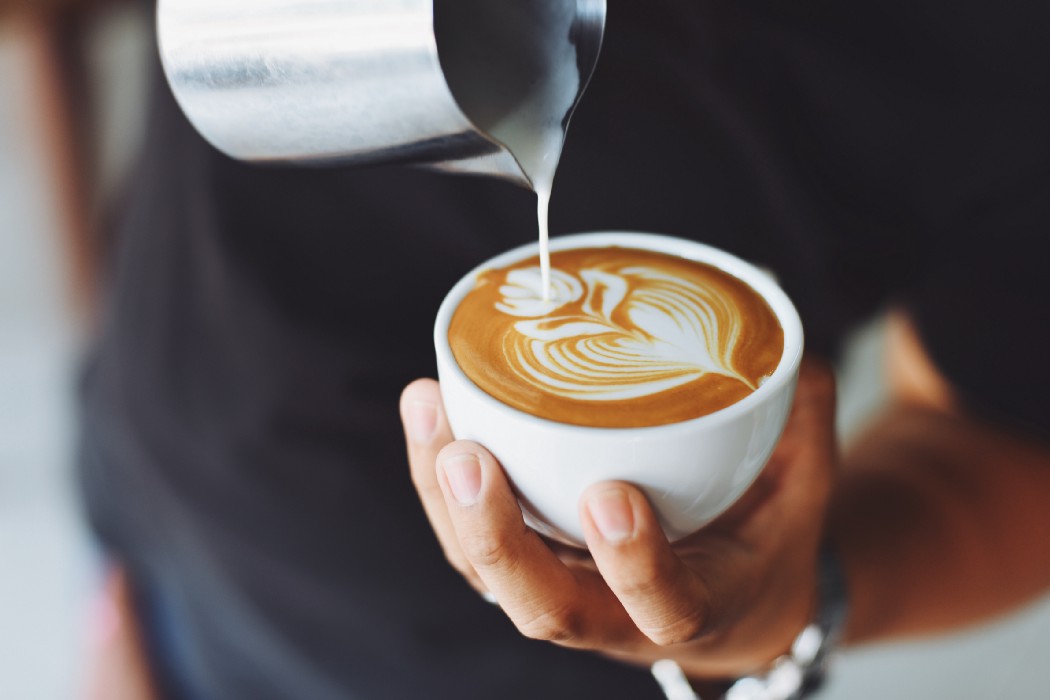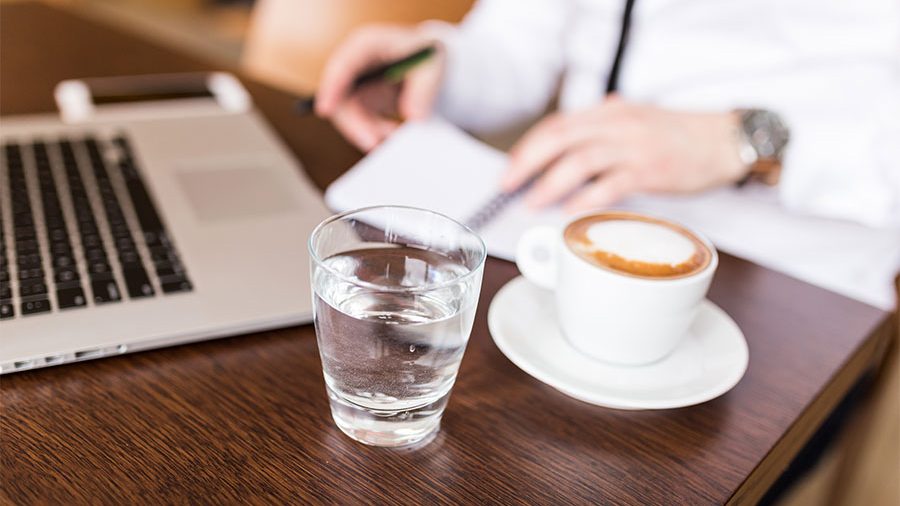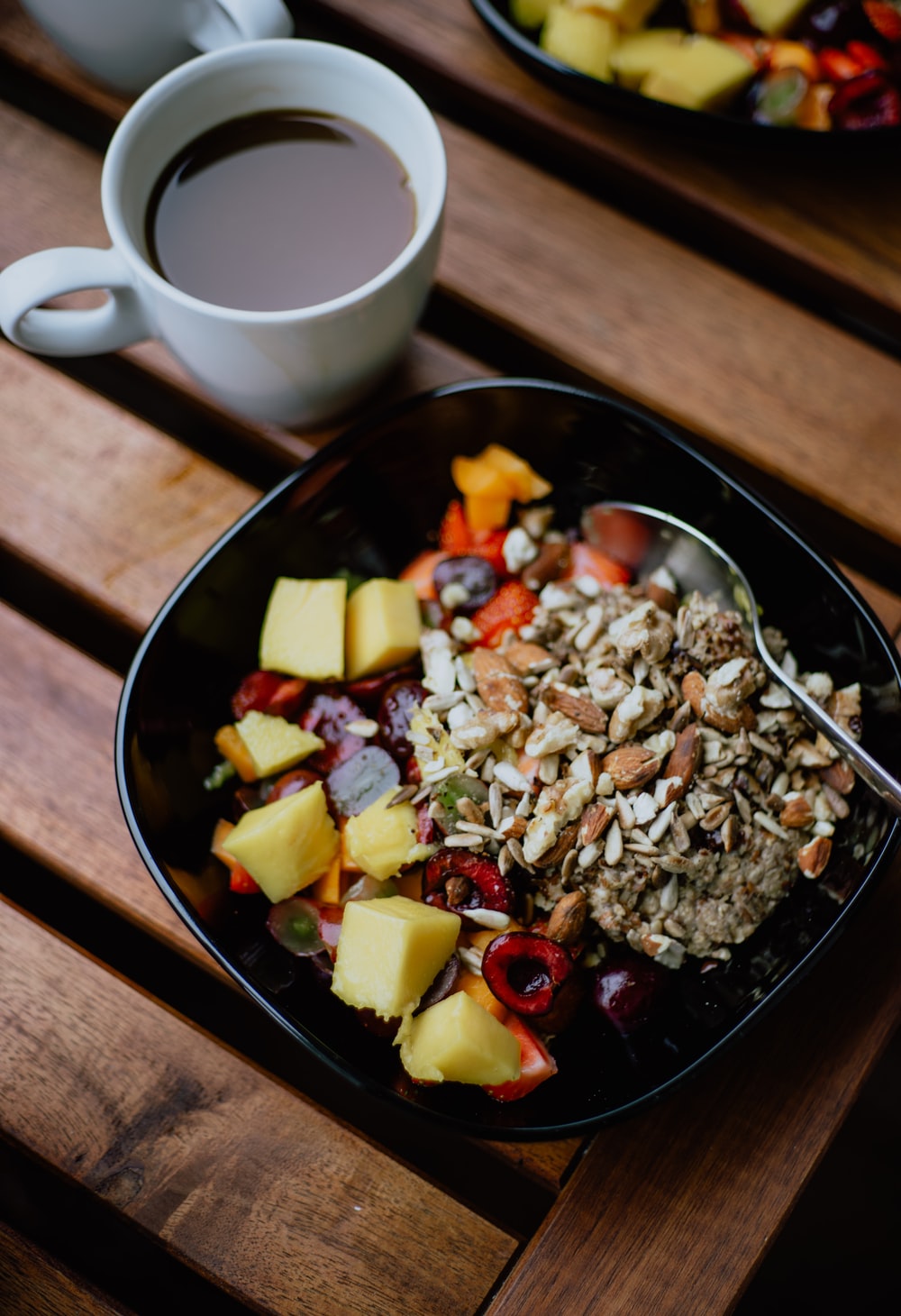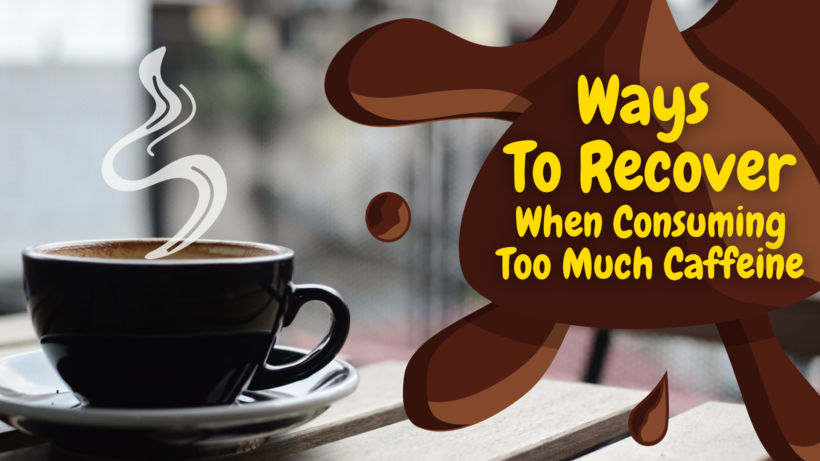
Loving to drink coffee or just needing coffee to boost your energy is common for most people in their daily life. Caffeine is able to increase alertness and help you get through sleepiness. Sometimes, as long as you can stay awake for the whole day, you may depend on excessive caffeine consumption. However, have you ever felt uneasy, especially in your heart, after having too much caffeine?
Right, it partially does weird, bad things to your mind and body. For now, you don’t have to worry. There are tips to counteract caffeine from your body so that you can still consume it properly to improve concentration without getting any side effects.
Contents
Many symptoms may occur after consuming too much caffeine
Your habits on caffeine intake should be changed immediately if you notice irregular pain in any part of your body. In fact, every single person tolerates caffeine consumption differently, that’s why the problems can range from mild to severe.
The general signs you are consuming heavy caffeine include in below points, the Mayo Clinic and a source from the Healthline article explained.
- Irregular or fast heartbeat: Arrhythmia is a main concern yet you have a way to fight against it. So read on our blog to see how you can reduce this opposite effect.
- Confusion: There is the problem that caffeine will not only stimulate your brain but also overstimulate it.
- Insomnia: It is mostly the issue of drinking until evening. Your drowsiness and fatigue will be relieved away, plus bedtime at night will be affected. It additionally harms your health when you don’t get enough sleep.
- Nervousness: For people who are diagnosed with anxiety and sleep disorder, you should cut down too much caffeine consumption before the condition turns worse.
- Inability to control urination: You should be more cautious that too much caffeine will later increase bladder instability.
- Trouble breathing, hallucinations, vomiting, and chest pain
According the Healthline article, other severe symptoms that you may experience temporarily which due to caffeine withdrawal are:
- Headache: This physical illness is triggered a day or days after the withdrawal of excessive caffeine yet it may relieve hangover symptoms within a little amount of intake.
- Irritability: Individuals of caffeinated beverage lovers feel annoyed easily because their bodies have already been used to it.
- Uncontrollable muscle movements or convulsions
If you really face these serious problems, it is probably a hint in life telling you that you are not a coffee person and need to stop touching caffeine.
On top of that, your high-risk condition in the future should not be neglected. Calcium, which is the most essential substance of the bone, will not be absorbed because of caffeine. As a result, osteoporosis will afflict the older you.
However, on the bright side, too much caffeine can lessen 2 risks. The first decreased risk that we want to mention is regarding the low possibility of committing suicide when your mood is enhanced by the caffeine. The second positivity of caffeine is it reduces the risk of oral and throat cancers.
The Amount of Caffeine That Is Considered Too Much
Of course, caffeine will not be able to bring harm. “200mg to 300mg or two to four cups of coffee is safe to consume,” says Dr. Michael Breus, a clinical psychologist and also a diplomate of the American Board of Sleep Medicine and a fellow of The American Academy of Sleep Medicine. Within this amount of consumption, it will not affect your health and difficulty in sleeping, he says. “If you have insomnia, higher levels of caffeine may be linked to sleeping less or waking up more. Because of this, you may need to trim down by a cup or two.”
And it is really important to be aware that powder type caffeine may cause risks to health, a caution from the U.S. Food and Drug Administration. “Just one teaspoon of powdered caffeine is equivalent to about 28 cups of coffee.” Knowing about this fact, there is no need to be cost-saving and time-saving by making your own instant coffee. If it’s for everyday’s demand, you are necessarily recommended to switch to consuming coffee bean grinding with a high-quality coffee machine.
According to Mayo Clinic, caffeine tolerance of adults, pregnant women or childrens are different. “Up to 400 milligrams (mg) of caffeine a day appears to be safe for most healthy adults. Women who are pregnant or who are trying to become pregnant and those who are breast-feeding should talk with their doctors about limiting caffeine use to less than 200 mg daily.” And it is important to know that miscarriage and developmental issues will affect the newborn baby while mother’s pregnancy and drinking caffeine activate at the same time. For adolescents, they should be careful to not use much caffeine, plus mixing it with alcohol and any kinds of drugs. The same goes to adults who experience the aforementioned symptoms, they are recommended to start reducing.
And it is handier for all caffeine consumers and users to have the caffeine content along with the amount of drink here so that you don’t need to further check. The chart below is retrieved from the Healthline article provided by the Center for Science in the Public Interest.
| Drink | Amount of Drink | Amount of Caffeine |
| Red Bull energy drink | 8.3 ounces | 80 mg |
| Coca-Cola | 12 ounces | 34 mg |
| Diet Coke | 12 ounces | 45 mg |
| Pepsi | 12 ounces | 38 mg |
| Brewed coffee (drip method) | 5 ounces | 115 mg* |
| Iced tea | 12 ounces | 70 mg* |
| Cocoa beverage | 5 ounces | 4 mg* |
| Chocolate milk beverage | 8 ounces | 5 mg* |
| Dark chocolate | 1 ounce | 20 mg* |
| Milk chocolate | 1 ounce | 6 mg* |
Read on to see what things can help you get out of uncomfortable feeling when you are sensitive to caffeine adverse effects.
6 Ways To Recover When Drinking Too Much Caffeine
It is now the time to slightly dial down caffeine addiction. Nevertheless, you desire to use it in order to increase your mood. So, simply follow these counteract methods, then you will still be able to enjoy consuming coffee or energy drinks within a limited amount along with building healthy routines.
1. Stay Hydrated

Sometimes, even if you are having a sip of coffee, you also feel thirsty simultaneously. You, surely, have to get yourself some drops of water too.
According to 2 studies from the National Center for Biotechnology Information, U.S. National Library of Medicine that provided in the Healthline article, consuming caffeinated drinks do cause dehydration as well as worsen the symptoms. On top of that, caffeine is a mild diuretic and eventually leads to increasing urination and more frequent stools. In this way, quickly drink water in order to increase water intake, relieve nervousness, and reduce urination problems. After all, you will just need to wait out and let water to flush caffeine out of your system.
Drink more water as much as you drink coffee! It’s an interesting routine to take turns having a coffee and a plenty of water.
2. Practice Breathing Exercises

According to a source in the Healthline article, caffeine stimulates the central nervous system because it has a lot of metabolic effects.
As a result, caffeine intake overdose will make your heart race irregularly and cause you to feel anxiety. According to Harvard Medical School, in order to make yourself feel at ease to do work and keep palpitation away, you should practice deep breathing in and out as it is the way to counteract caffeine. While you’re reading this or after finishing reading this one way to recover, you can practice by first sitting quietly and closing your eyes. Then, place one of your hands on your abdomen and inhale slowly and deeply through your nose. So, when you feel your abdomen move outward, exhale through either your nose or mouth whichever you are more comfortable with. You can continuously do it until you feel a regular heartbeat back to normal. It, additionally, stated, “If your heart is racing unexpectedly, you can try by yourself to do one of the following maneuvers.”
Another way of breathing method is called “Valsalva maneuver”, in which you pinch your nose closed with the fingers of one hand and attempt to exhale strongly through your mouth. Moreover, bearing down is also how you perform the Valsalva maneuver. For instance, you can clench your stomach muscles and your anal sphincter. Then bear down as if you are having a bowel movement.
3. Eat Fiber-Rich Food

Foods that are rich in fiber, and slow-digesting, like whole grains, beans, lentils, starchy vegetables, nuts provide one main benefit. An integrative medicine doctor, Bindiya Gandhi, M.D., told Mind Body Green’s article that these can help slow the release of caffeine into your bloodstream.
Dr. Barry Sears, a leading authority in anti-inflammatory nutrition and president of the Inflammation Research Foundation, explained, “One way to reduce the need for caffeine is to stabilize blood sugar levels so that the brain has its primary energy source constantly supplied. This means eating fewer high glycemic carbs (like white carbs) and more protein and low glycemic load carbs like vegetables.”
So if you are a veggie-lover, there is no big concern about permitting caffeine to stay in your body for too long.
4. Take A Walk

According to Dr. Breus, it is really crucial to take a stroll in the morning or run outside. He said, “Natural light exposure during the day helps regulate your wake-sleep cycle and just 15 minutes will also provide Vitamin D, which is important for sleep.”
Not only you will be able to sleep, but also anxious and nervous feelings will be reduced if you go for a light walk. It is also important to consider getting your body moving can naturally increase your energy levels without caffeine. Along the way, your positivity and productivity will be enhanced.
5. Time It Right

You just felt uncomfortable yesterday because of the effects. But having another stressful morning to wake up today and thinking of having a caffeinated drink to start your day with vigor? It’s understandable that you feel this way. And, do you know why? It is a stimulant, Dana Hunnes, Ph.D., M.P.H., R.D., a senior dietician at UCLA Medical Center, told SELF magazine in an interview that the body depends on it to feel great. Without it, you will be in a bad mood. “It stimulates the dopamine receptors in our brain, kind of like cocaine and other certain drugs, just not nearly to the same extent.”, she said.
Because of this, you need to gain your self-control by setting your drinking time precisely. You can first get vitamin D from the Sun for 20-minute and drink at least 16-ounce of water after getting up. “Resist drinking coffee right when you wake up: as we wake up, our cortisol levels are already high,”, Dr. Breus explained. He also continued and suggested, “Cutting off caffeine by 2 pm assuming a normal morning wake up and evening go to bed cycle. If you work shift work, adjust your cut off time accordingly.”
6. Cut Back Gradually

For those who are super sensitive to caffeine, it will turn to be your risky enemy even though it is recognized as safe. You should pay attention to your body limit for what it can take.
According to Mayo Clinic, for each day, you are allowed to drink one fewer can of soda or drink a smaller cup of coffee. By managing your own way of consuming daily, your body later will be familiar with lower levels of caffeine and also make potential withdrawal effects become less serious.
There is another extra tip if you are considering quitting drinking coffee completely. Cutting back gradually is the first step to make yourself adapt to the amount that you used to consume excessively, otherwise, according to American Heart Association, you probably experience caffeine withdrawal effects within 12 to 24 hours. For example, you will start to have a headache as well as feel anxious, tired, sleepy and depressed. Indeed, it will take time for caffeine to leave your system. Keep in mind that your body needs one to two days to combat this problem.
Takeaway
In some situations, you will not know the risk of caffeine overdose even though it is safe when you drink right as suggested. Each individual limit is different because not 400mg of caffeine a day can serve everyone. You, as well, must try to limit your daily consumption to 200 or 300 mg a day due to the possible negative effects. It’s better to be aware of your body’s strength and weakness in which amount of intake is comfortable and healthy.
If you have noticed symptoms hit you hard and want to flush too much caffeine out of your body, you should be hydrated all the time. Apart from drinking water, there are more numerous ways to help make adverse effects less harmful. Practicing deep breathing, eating high fiber foods, taking a walk are simple yet useful recommendations. One tip to counteract caffeine can reduce the seriousness of many symptoms. And, that will be great if you follow and practice.
References
- Affluent Aromas: Top 5 Most Expensive Coffee Beans in the World | Jetset Magazine | Fadi Sitto
- The Effects of Caffeine on Your Body | Healthline | Ann
- Drank Too Much Caffeine? 5 Expert-Approved Ways To Reduce The Effects | Mindbodygreen | Abby
- Signs You’re Drinking Too Much Caffeine – The List | TheList.com | Adria Valdes
- Dr. Michael Breus: Can’t Sleep Because of Caffeine? Here’s the Solution | Your Guide to Better Sleep | Dr. Michael
- Caffeine: How much is too much? | Mayo Clinic |



